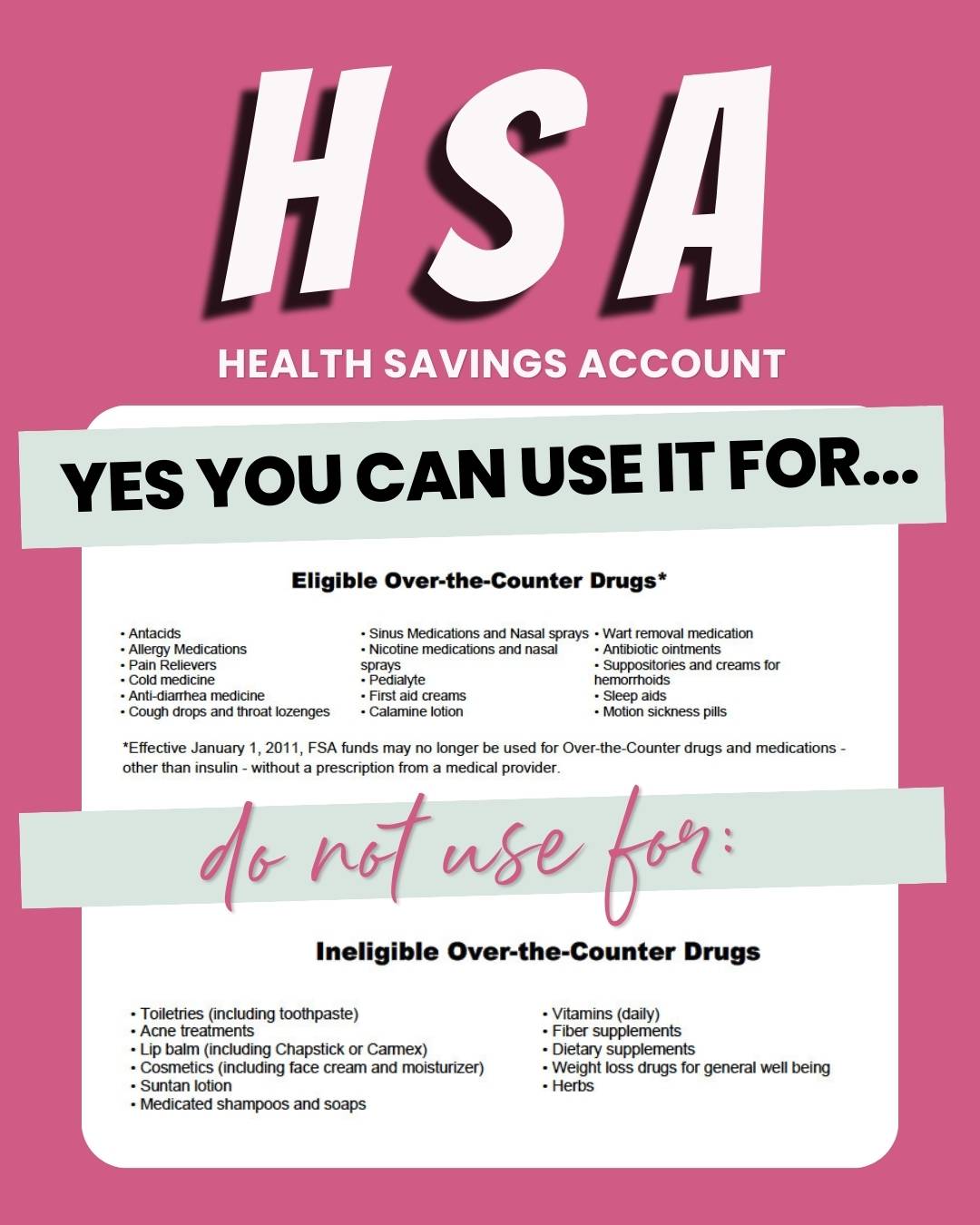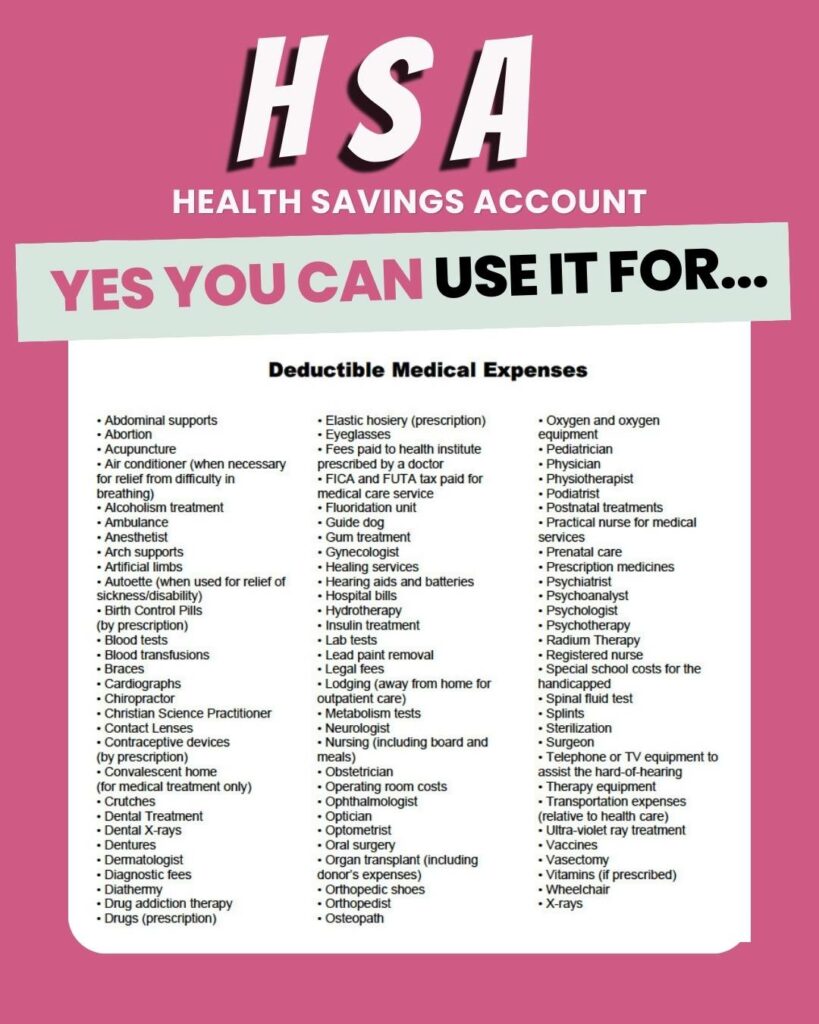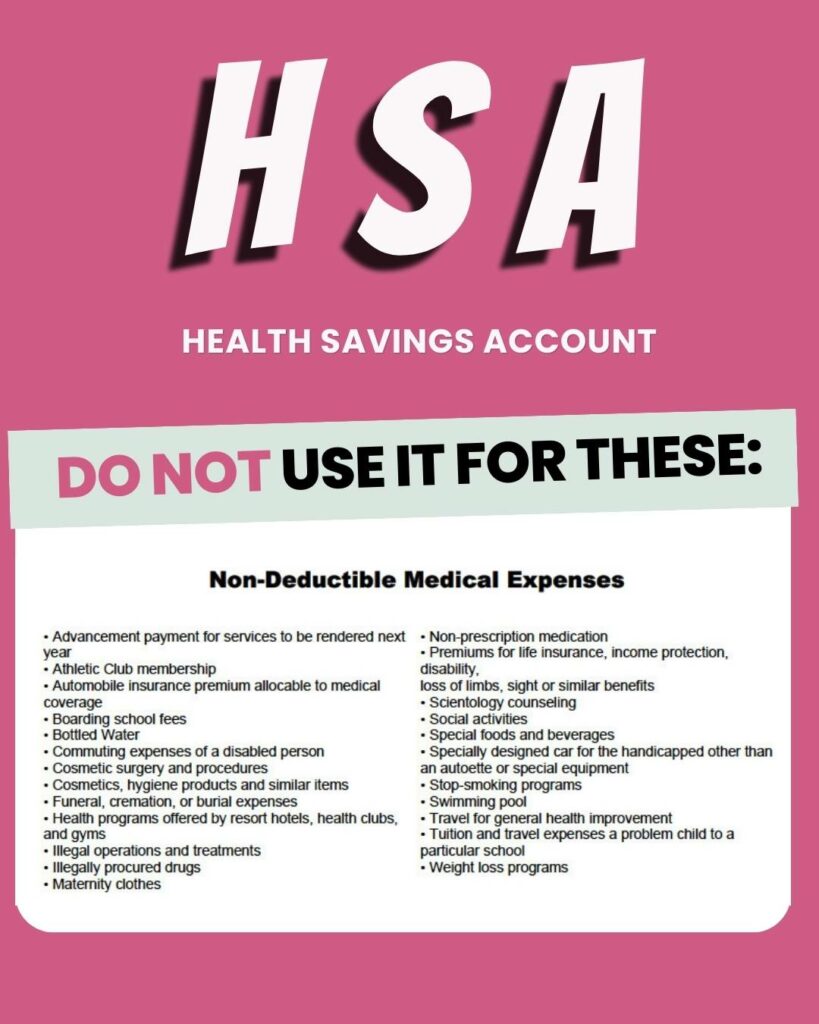I think I first learned about health savings accounts, HSA for short, less than 10 years ago.

Now I’ve been using mine for about 5 years. My health savings account has been incredibly helpful. I use it to pay for my medical expenses using a debit card connected to the HSA account. It’s like a bank account that you only use for medical expenses, and they have to be listed as ‘approved or qualifed expenses’ or else there are penalties. So you definitely want to follow the rules, hwoever there are a ton of products that qualify.
When I traveled to Las Vegas in 2019, I got really sick and after 5 days of puking, I ended up in the Vegas Emergency Room and it cost over $1,000. Instead of paying from my own personal checking account funds, I used my HSA card, which was a HUGE relief as I didn’t have extra money in my checking account for the emergency expense.
An HSA is a tax-exempt trust or custodial account you set up with a qualified HSA trustee to pay or reimburse certain medical expenses you incur. You must be an eligible individual to contribute to an HSA.
Here are the rules according to the IRS website (in italic below)
No permission or authorization from the IRS is necessary to establish an HSA. You set up an HSA with a trustee. A qualified HSA trustee can be a bank, an insurance company, or anyone already approved by the IRS to be a trustee of individual retirement arrangements (IRAs) or Archer MSAs. The HSA can be established through a trustee that is different from your health plan provider.
What are the benefits of an HSA?
- You can claim a tax deduction for contributions you, or someone other than your employer, make to your HSA even if you don’t itemize your deductions on Schedule A (Form 1040).
- Contributions to your HSA made by your employer (including contributions made through a cafeteria plan) may be excluded from your gross income.
- The contributions remain in your account until you use them.
- The interest or other earnings on the assets in the account are tax free.
- Distributions may be tax free if you pay qualified medical expenses. See Qualified medical expenses.
- An HSA is “portable.” It stays with you if you change employers or leave the work force.
Qualifying for an HSA Contribution
To be an eligible individual and qualify for an HSA contribution, you must meet the following requirements.
- You are covered under a high deductible health plan (HDHP), described later, on the first day of the month.
- You have no other health coverage except what is permitted under Other health coverage, later.
- You aren’t enrolled in Medicare.
- You can’t be claimed as a dependent on someone else’s 2022 tax return.1
HSA Tax Benefits
HSA are tax-free accounts yet they offer individuals the opportunity for extremely rare TAX-FREE GROWTH inside your HSA account using authorized investments, including real estate investments!! Does that blow your mind? It’s true! I’m not an expert and haven’t yet used my for investing but I do know it’s legal and possible.



HSA for Business Owners
I highly recommend checking out a health savings account if you’re self employed or a small business owner. It can make big difference in your personal financial management and also give you a tax benefit, along with peace of mind.
1) SOURCE: https://www.irs.gov/







